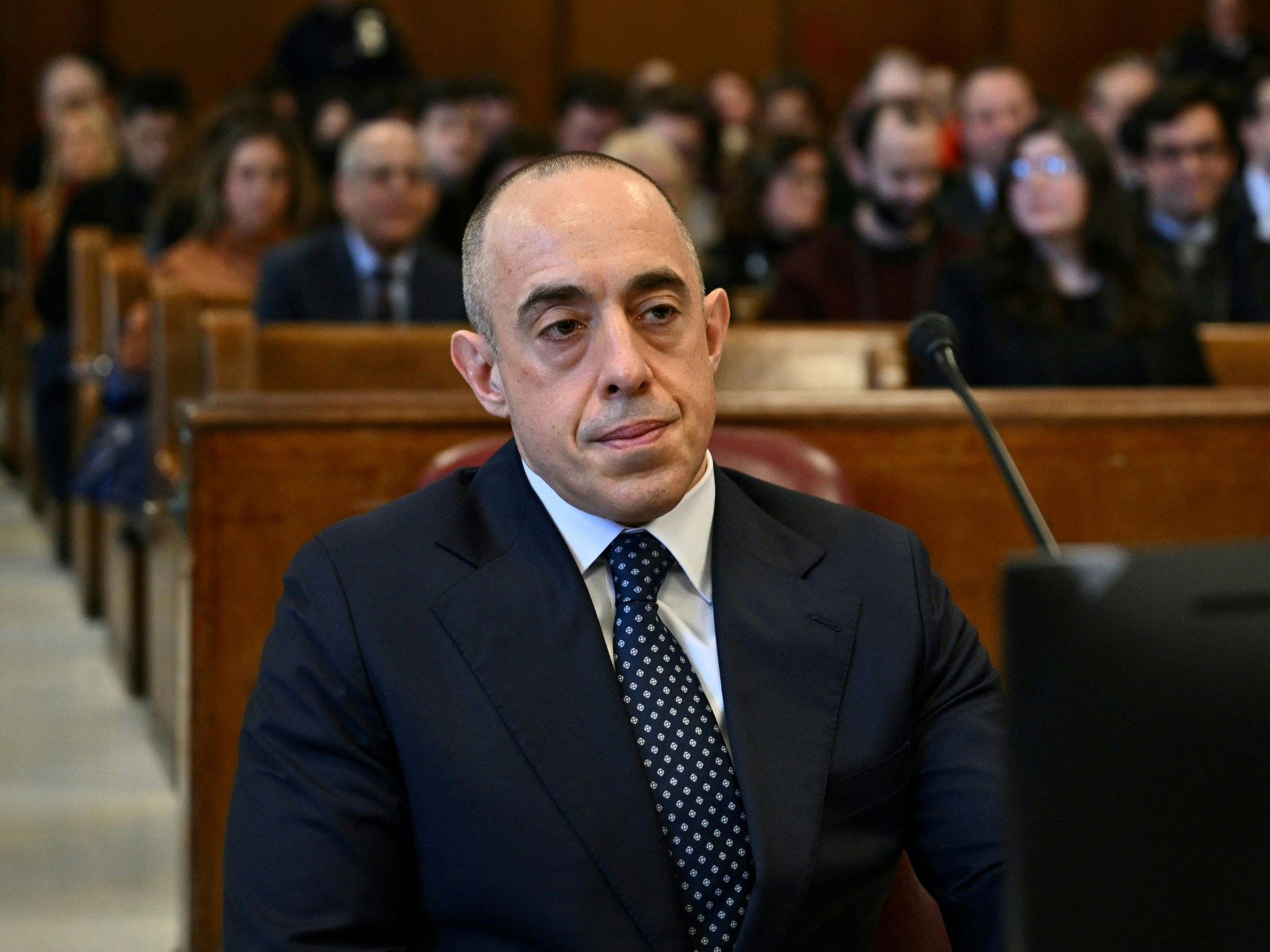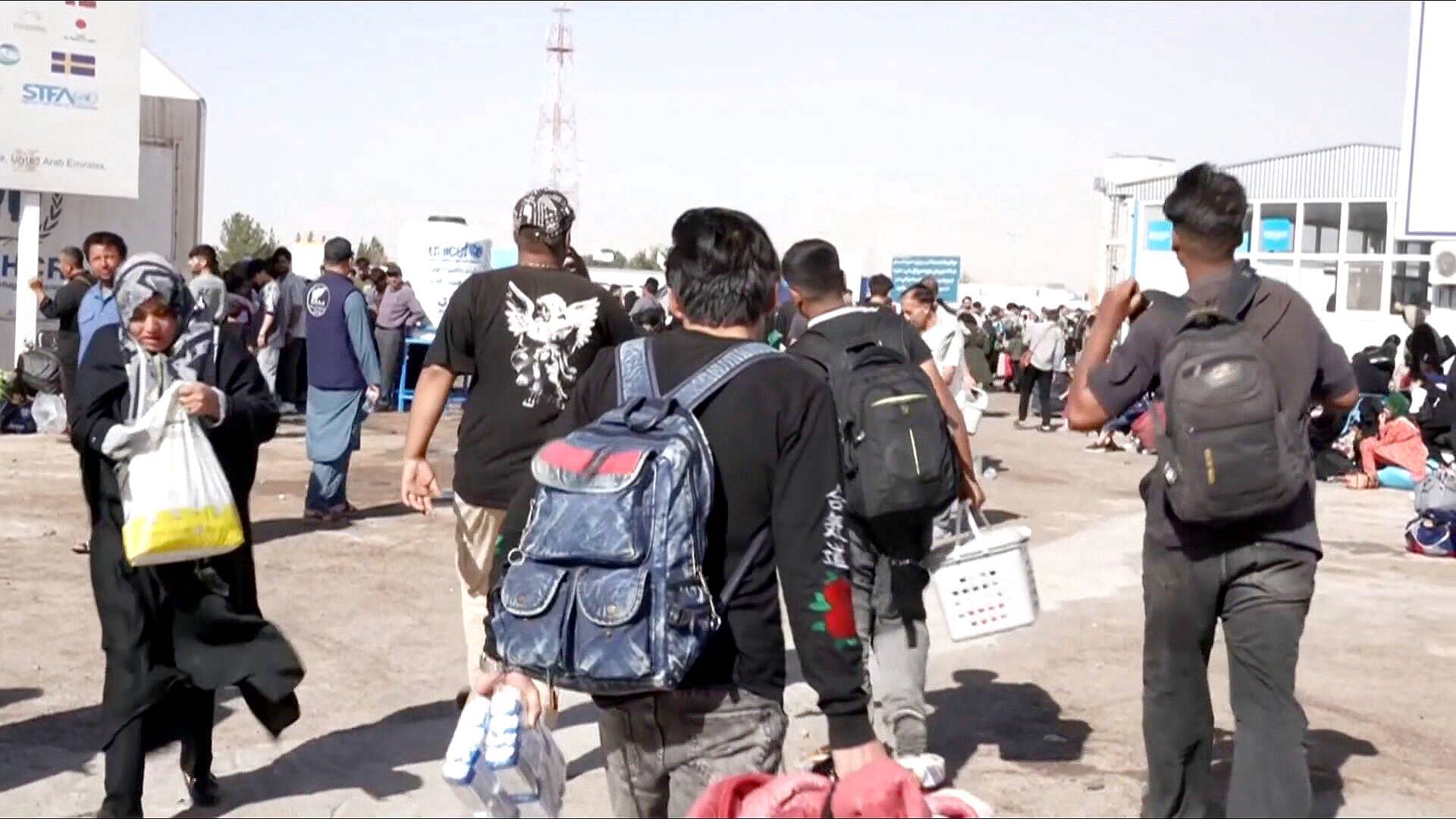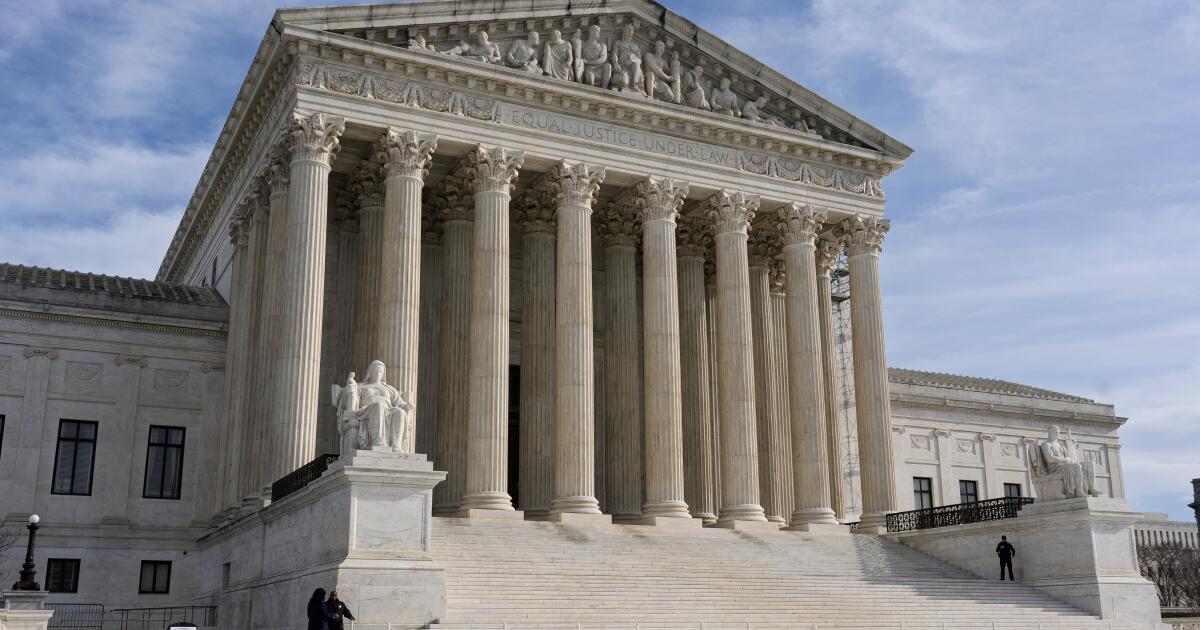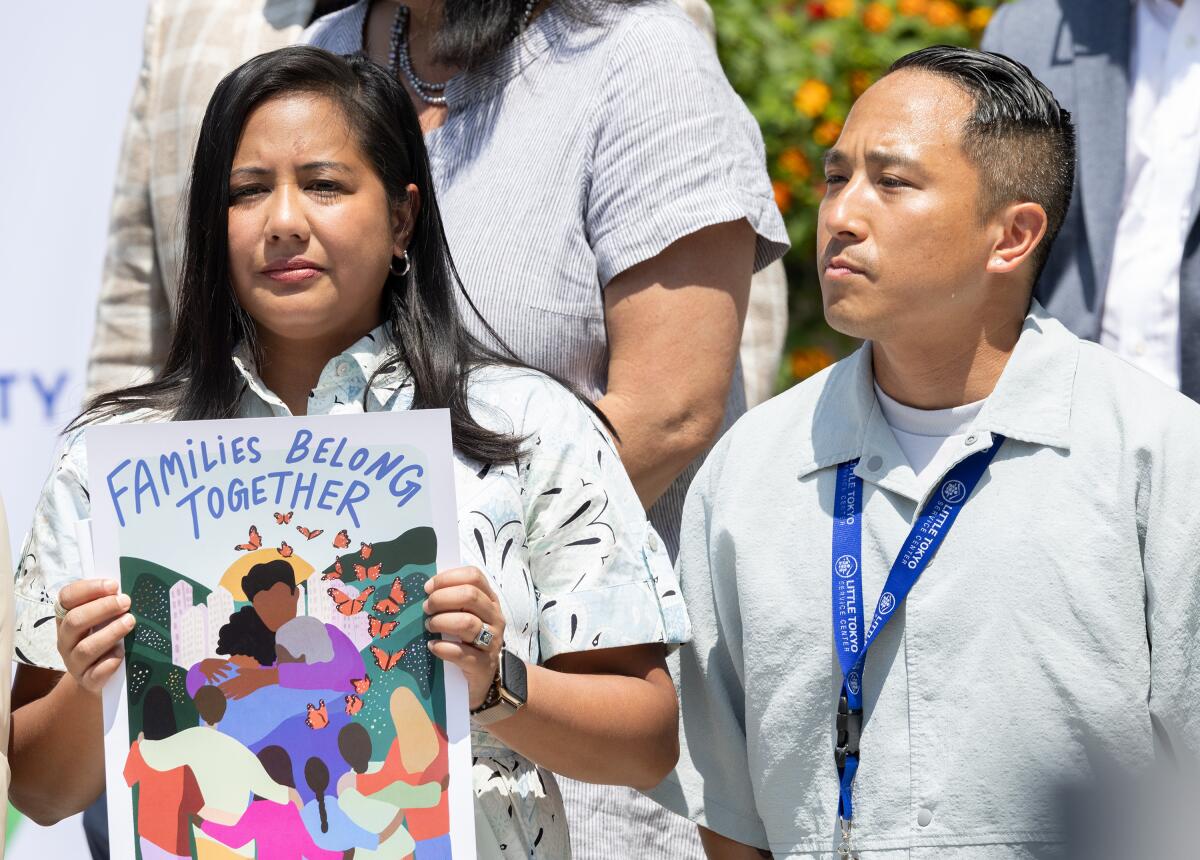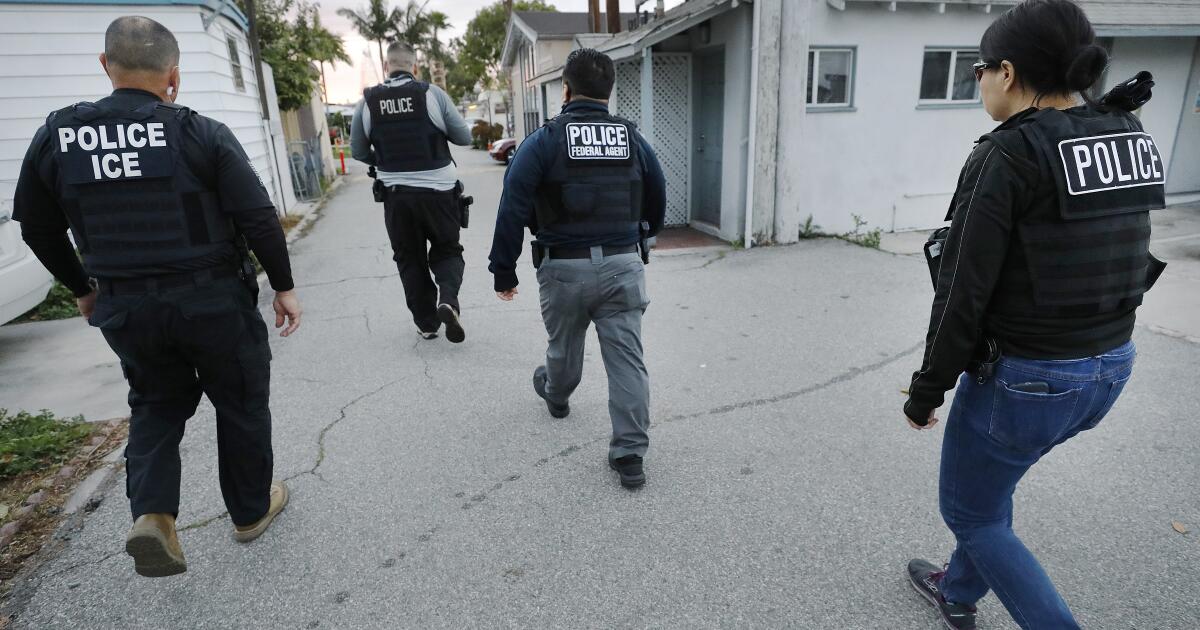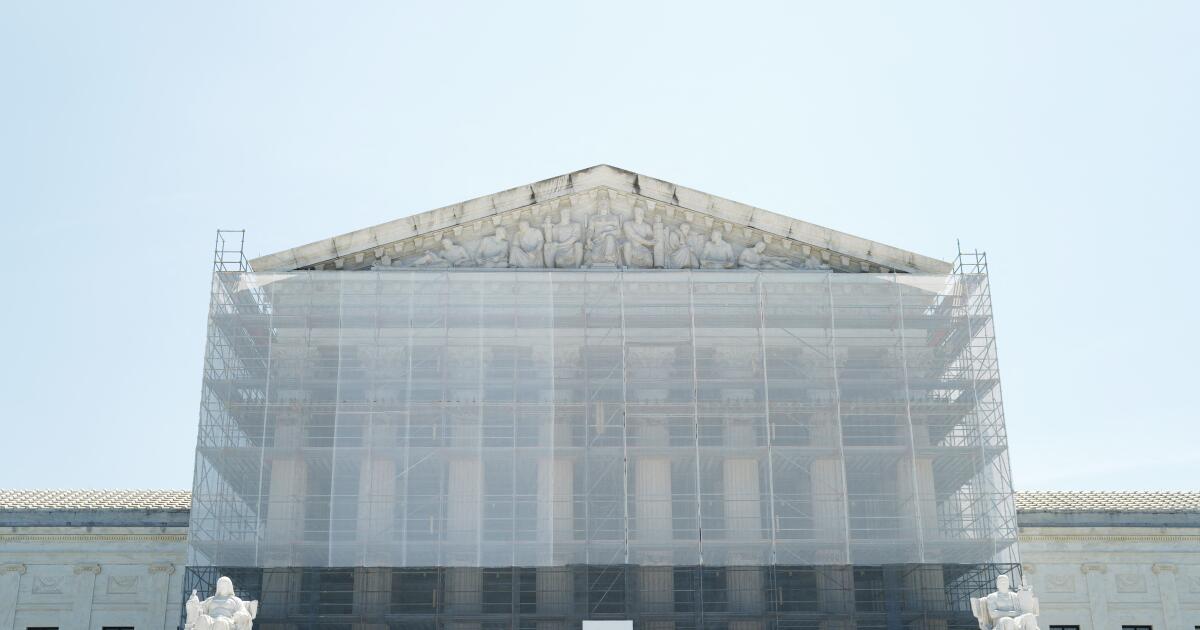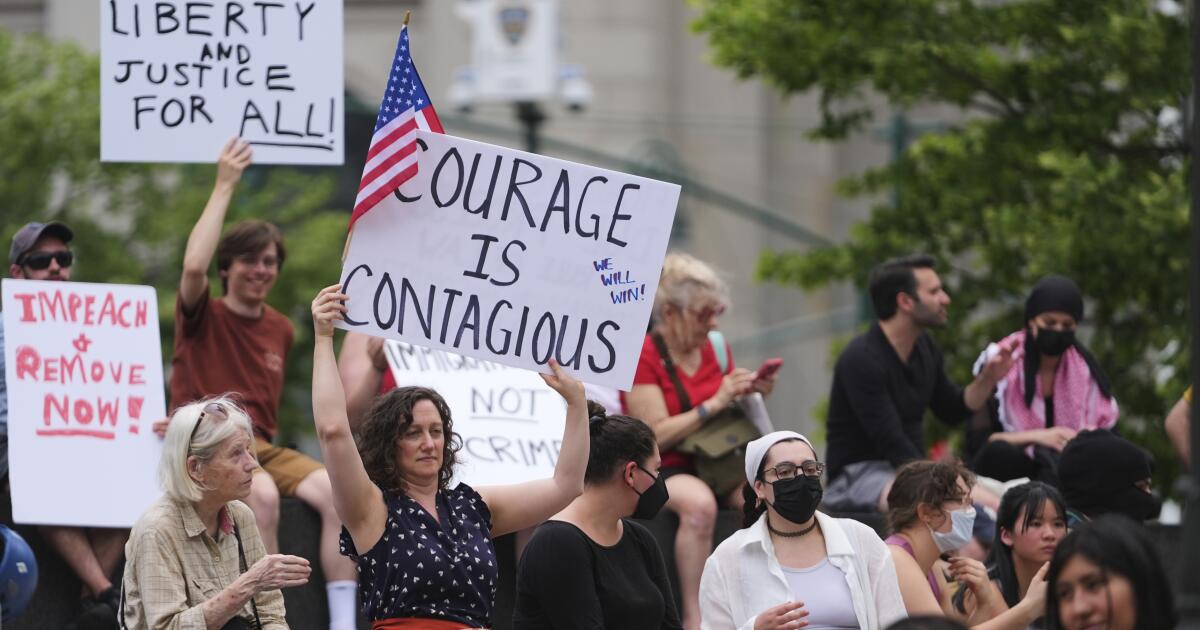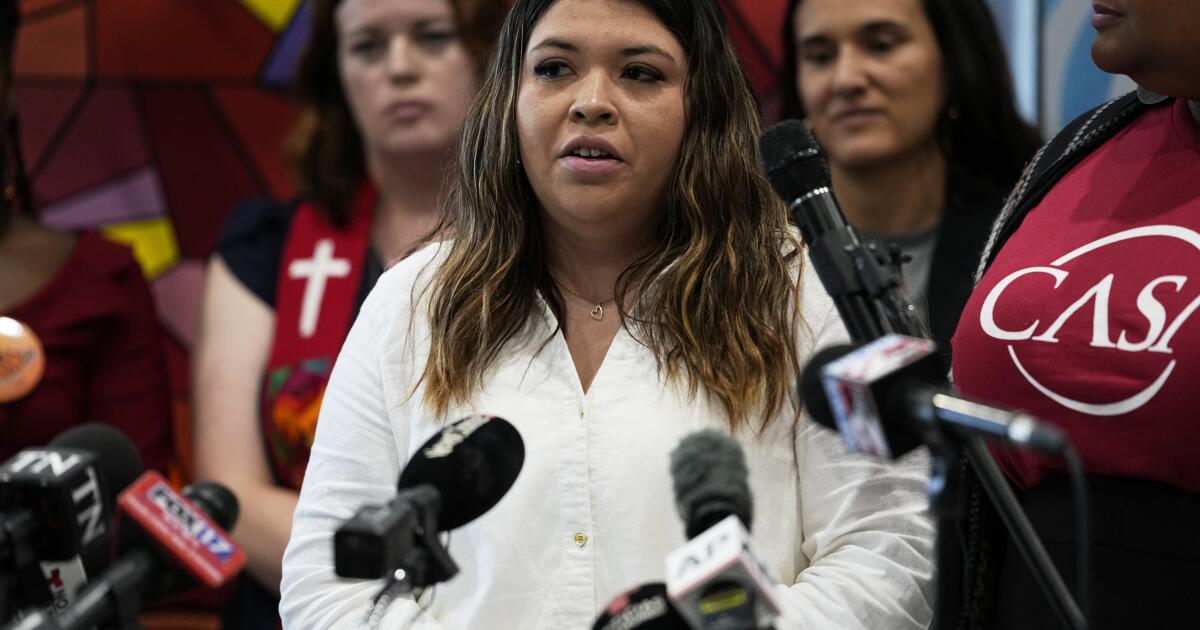Democrats publish leaked Justice Department messages on US deportation push | Donald Trump News
Democrats in the United States Senate have released a string of text messages and email correspondences that they say raises questions about the executive branch’s commitment to complying with court orders.
On Thursday, Senator Dick Durbin of Illinois, the ranking member on the Senate Judiciary Committee, released what he described as “whistleblower” evidence about government lawyer Emil Bove.
In his role as acting deputy attorney general for the Department of Justice (DOJ), Bove directed his colleagues to ignore or mislead courts about President Donald Trump’s deportation efforts, according to Durbin.
“Text messages, email exchanges, and documents show that the Department of Justice misled a federal court and disregarded a court order,” Durbin wrote on social media.
“Mr Bove spearheaded this effort, which demanded attorneys violate their ethical duty of candor to the court.”
Bove – formerly a personal lawyer to President Trump during his criminal trials – was recently nominated to serve in a lifetime position as a judge on the US Court of Appeals for the Third Circuit. But the Senate must first vote to confirm him to the role.
“Emil Bove belongs nowhere near the federal bench,” Durbin wrote. “This vote will be a litmus test for Senate Judiciary Republicans.”
Durbin indicated the emails and texts he released come from a Justice Department source: Most of the names in the correspondences have been redacted.
But they appear to corroborate allegations made in a complaint in June by Erez Reuveni, a Justice Department lawyer who worked under Bove until his dismissal in April.
In his complaint, Reuveni alleged that Bove told Justice Department lawyers that they “would need to consider telling the courts ‘f*** you’” if they interfered with President Trump’s deportation plans.
The expletive came up in the context of Trump’s controversial use of the Alien Enemies Act of 1798, a law that, until recently, had only been used in the context of war.
Trump, however, has argued that undocumented immigration constituted an “invasion” and has attempted to deport people under the law’s authority, without allowing them to appeal their removal.
According to Reuveni, Bove explained to the Justice Department that Trump planned to start the deportation flights immediately after invoking the Alien Enemies Act. He “stressed to all in attendance that the planes needed to take off no matter what”.
Reuveni understood that interaction as an attempt to circumvent the power of the courts.
In another instance, Reuveni said he was discouraged from asking questions about the return of Kilmar Abrego Garcia, an immigrant wrongfully deported to El Salvador despite a court protection order.
When Reuveni admitted before a Maryland court that he did not have “satisfactory” answers about Abrego Garcia’s return, he said Trump officials pressured him to make assertions against Abrego Garcia that “were not supported by law or the record”. He was fired shortly afterwards.
The documents gathered by Senate Democrats appear to offer a look inside those incidents.
In one series of emails, dated March 15, Reuveni responded to a notification that planes bearing deportees under the Alien Enemies Act were still in the air.
“The judge specifically ordered us not to remove anyone in the class, and to return anyone in the air,” he wrote back.
The emails reflected an injunction from District Judge James Boasberg barring deportations and ordering the planes to turn around.
Nevertheless, the planes landed in El Salvador and delivered their human cargo to a maximum security prison, where many remain to this day.
In another instance, a member of the Department of Homeland Security (DHS) replied to an email thread by saying: “My take on these emails is that DOJ leadership and DOJ litigators don’t agree on the strategy. Please keep DHS out of it.”
Text messages also show Reuveni and an unnamed colleague discussing Bove’s request to tell the courts “f*** you”.
“Guess we are going to say f*** you to the court,” one text message reads.
In another, the colleague appears to react to Trump officials lying before the court. “Oh sh**,” they write. “That was just not true.”
In an interview published with The New York Times on Thursday, Reuveni underscored the grave dangers posed by an executive branch that he sees as refusing to comply with judicial authority.
“The Department of Justice is thumbing its nose at the courts, and putting Justice Department attorneys in an impossible position where they have to choose between loyalty to the agenda of the president and their duty to the court,” he told the Times.
The Trump administration, meanwhile, has responded with defiance, repeating its claim that Reuveni is simply a “disgruntled employee” lashing out at the employer who fired him.
“He’s a leaker asserting false claims seeking five minutes of fame, conveniently timed just before a confirmation hearing and a committee vote,” Attorney General Pam Bondi said.
“No one was ever asked to defy a court order. This is another instance of misinformation being spread to serve a narrative that does not align with the facts.”
Bove himself denied ever advising his colleagues to defy a court order. The Senate is set to decide on his confirmation to the circuit court in the coming weeks.
If he passes the Senate Judiciary Committee – in a vote scheduled for July 17 – he will face a full vote on the Senate floor.
